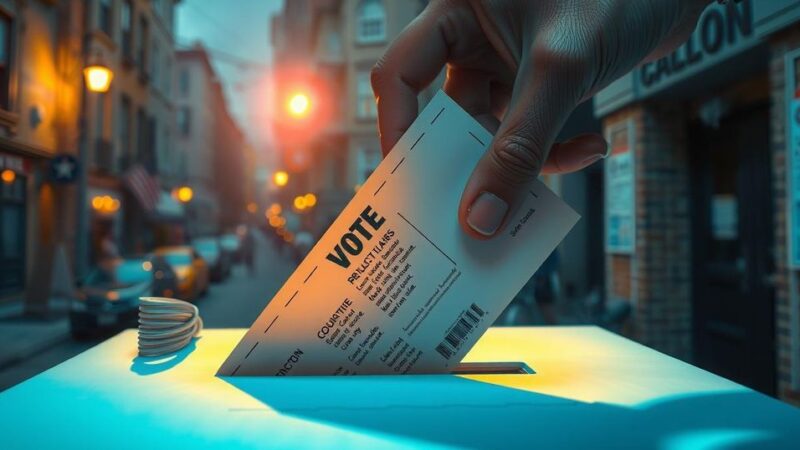Namibia’s opposition has demanded that voting be suspended due to significant discrepancies in the electoral process triggered by logistical challenges and delays in ballot counting. Such issues have raised credible suspicions of voter suppression by the Electoral Commission. The SWAPO party, having ruled since independence, faces a potentially transformative election amid rising public discontent regarding unemployment and economic inequalities.
Namibia’s opposition has urged for voting to be halted amid escalating confusion during the ongoing national elections, following significant logistical failures that disrupted the electoral process. Delays in ballot counting have raised concerns as polling stations remained open longer than planned on election day, accommodating long waiting lines. Christine Aochamus, representing the Independent Patriots for Change (IPC), expressed dismay at the disorganized state of the elections, where certain polling stations were still permitting votes while others were beginning to tally results. The IPC, alongside 18 other opposition parties, has called on the Electoral Commission of Namibia (ECN) to suspend ongoing vote counting and current voting practices due to these discrepancies. Voters have reported waiting excessively long outside stations, raising suspicions of electoral malpractice, which they attribute to calculated efforts by the ECN to suppress voter turnout. The party currently in power, the South West Africa People’s Organisation (SWAPO), faces significant challenges this election cycle amid rising discontent regarding unemployment and persistent economic inequalities, particularly affecting the youth. Analysts suggest that Vice President Netumbo Nandi-Ndaitwah, SWAPO’s candidate for president, may need to secure more than half of the votes to avoid a runoff, as evidenced by the high voter turnout reflecting a desire for change. The dissatisfaction with the handling of the election process could herald a shift in Namibia’s political landscape as the nation grows increasingly restive under SWAPO’s long-standing leadership since independence in 1990.
Namibia will hold its presidential and legislative elections, marking a pivotal moment as the South West Africa People’s Organisation (SWAPO) seeks to maintain its authority after 34 years of political dominance. The electoral commission’s inefficiencies have led to significant public frustration, especially among the youth, who face soaring unemployment rates. This election is notably challenging for SWAPO, as opposition parties mobilize in an attempt to capitalize on public dissatisfaction over longstanding economic inequalities. Analysts predict that poor management of the electoral process may influence voter sentiment and potentially alter the future of Namibia’s governance.
The situation in Namibia underscores the dire need for systematic reforms within the electoral process as evidenced by the widespread discontent amongst voters and the opposition’s calls for immediate intervention. The unfolding events could significantly impact SWAPO’s grip on power, as it faces an invigorated opposition and substantial public frustration over economic issues. The electoral commission’s handling of the election presents a crucial test not only for the current administration but also for the future political landscape of Namibia.
Original Source: www.seychellesnewsagency.com






